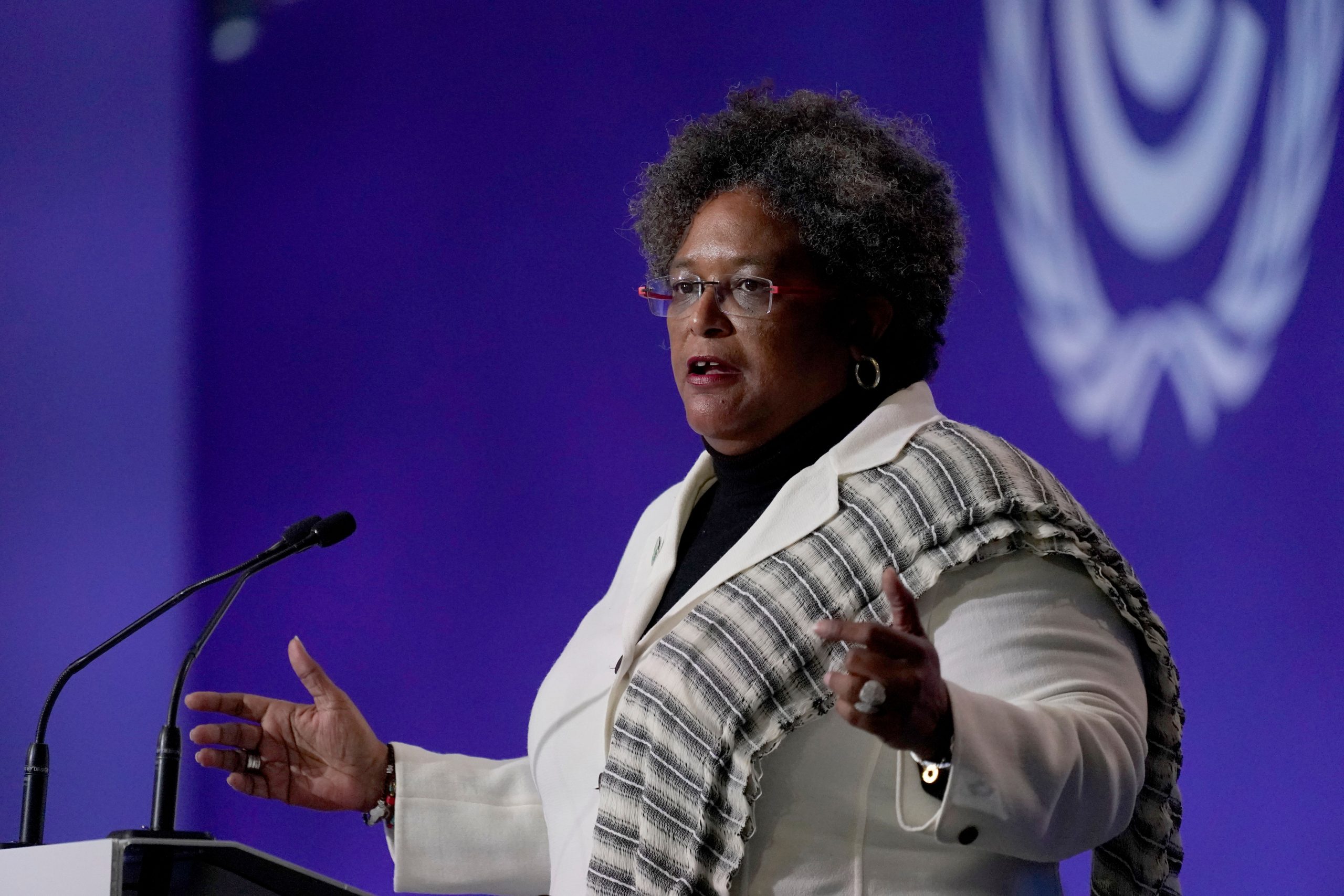The party of Barbados’ Prime Minister Mia Mottley appeared to have swept every legislative seat in the first elections the island nation has held as a republic since casting off the British monarchy, according to preliminary results released Thursday.
Mottley’s Barbados Labor Party seemed to have secured all 30 seats in the House of Assembly, the lower house of the island’s Parliament, which would give the island’s first female leader a second term as prime minister. A majority of 16 seats was required for a win.
Also Read | Tsunami hits Japan’s Pacific coast after underwater volcano erupts in Tonga
“The people of this nation have spoken with one voice, decisively, unanimously and clearly,” she said in her celebratory speech before dawn on Thursday to a large crowd clad in red shirts.
Also Read | In Pics: Deadly bomb blast at Anarkali market, Lahore shocks Pakistani city
Mottley, who pledged to focus on issues including financial security, nutrition, renewable energy projects and housing, said the island faces serious challenges in the next 10 to 15 years.
Carla Natalie Barnett, the secretary general of the Caribbean Community, a 15-member regional trade bloc, congratulated Mottley on her “resounding victory.”
Also Read | One year of Joe Biden: US President spent more time on personal travel than predecessors
Mottley’s main opponent, Verla De Peiza of the Democratic Labor Party, conceded defeat.
“We’ve lost our democracy without intending it,” she told local media and called the voter turnout “depressive.”
“It was a reckless time to call an election,” she said.
Also Read | Norwegian mass killer seeks parole, sparks fears
Mottley was criticized for calling a snap general election shortly after Barbados cut ties with Queen Elizabeth II in November and ceased to be a constitutional monarchy. The next elections had been scheduled for mid-2023.
Also Read | Explained: Why Donald Trump won’t support Arizona governor Doug Ducey?
More than 266,000 people were eligible to vote, but preliminary information suggests that only 50% participated. More than 5,700 were unable to vote because of COVID-19 infections, prompting one opposition candidate to seek an injunction prior to the election, which a court rejected.







